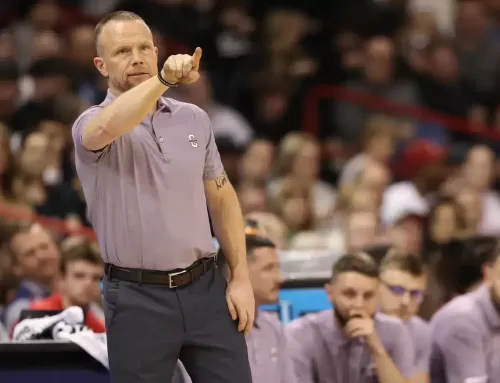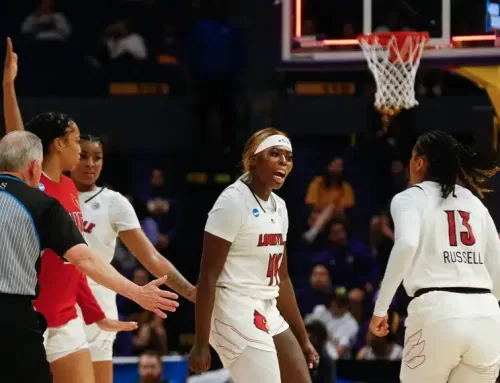By Phillip Lentsch—
For years, TEDTalks have delivered thought-provoking videos to the public. Last Thursday, U of L’s Honors Student Council kicked off an event in the same spirit—REDTalks. Hosted in the Chao Auditorium, the event was intended to serve as a platform for professors and students to discuss a variety of interesting topics. Serving a meal of Raising Canes and desserts beforehand, Honors Student Council invited five professors to deliver 30-minute talks.
Larry Tyler, Ph. D and Patricia Ralston, Ph. D—both prominent professors in Speed School—were the first to speak, touching on their history as professors and mathematicians, as well as their lives outside of the classroom. Their talk was titled “Engineering Mathematics Education and on Life Outside Engineering.”
“Our main wish for all students here at U of L is for them to be inspired to do great things and to prepare to pursue a career that is both enjoyable and worthwhile,” Ralston said.
Next up was Michael Johmann, Ph.D, a humanities professor who focused his speech on the concept of the “scholar-athlete.” Citing sports as a defining characteristic of our culture, Johmann proposed a possible course revolving around the necessity and significance of the student-athlete in today’s university system.
“Just by observing the incidents at Missouri this past week, as well as the Northwestern football player strike a year ago, one can see just how much influence sports programs have in our college environment. I’d like to continue to explore that phenomenon,” said Johmann.
Professor Mary Ann Carothers of the fine arts department talked about public art and collaborative platemaking, taking the viewers through a real-life experience of what constitutes communication art design. Caruthers hopes to see an increase in humans’ abilities to design art that transcends normal boundaries and redefines our understanding of it.
The final talk was an analysis of the minimum wage given by John Nelson, Ph.D, in which he and the audience discussed the internal and external factors at play for raising or lowering the minimum wage and the repercussions it would have for the country. Instead of taking a side, he wished to provide more of an open dialogue that examined the economic and social implications of the minimum wage, instead of playing partisan politics.





